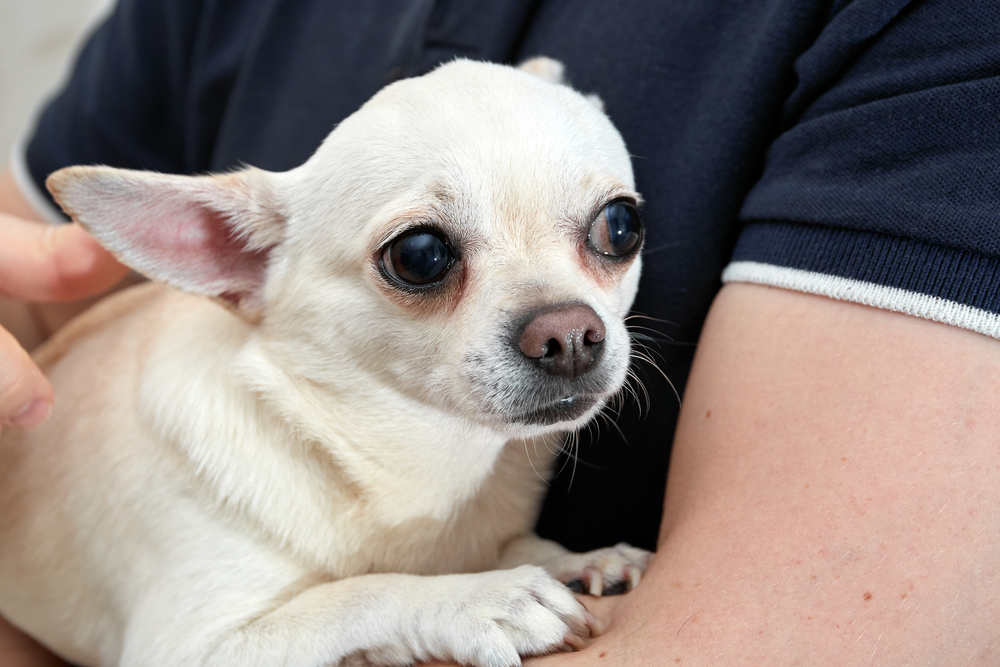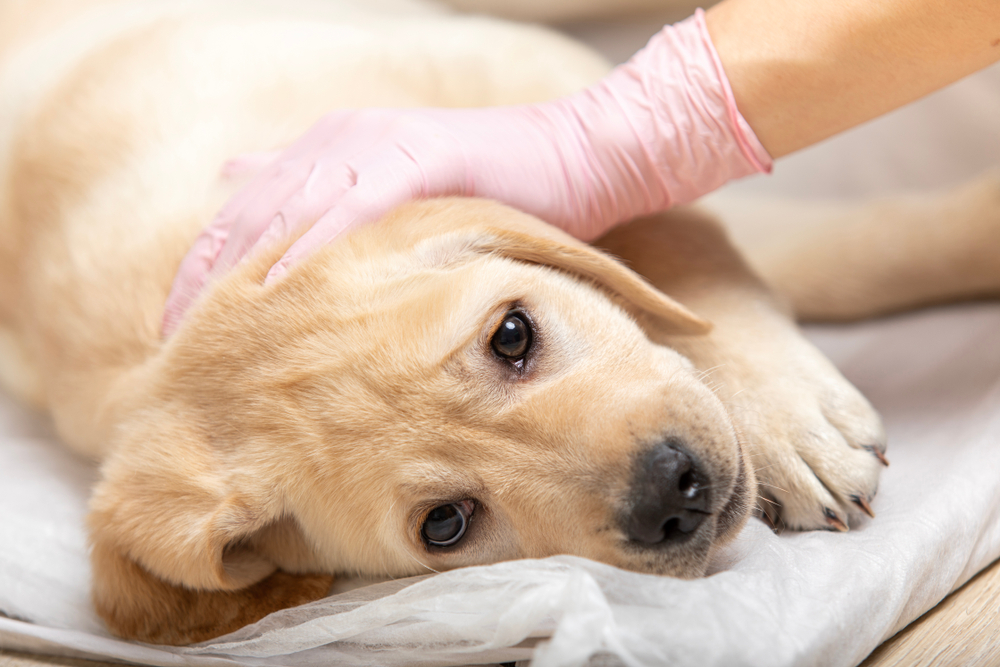Dogs are incredibly expressive! Whether it’s those happy, wiggling bodies or their eyebrows sending us messages, canines can have so much to say through body language.
One thing that dogs do from time to time is shake. But what exactly does it mean when your pup starts shaking? Are they cold or nervous? Or is there something else going on? Most of the time, shaking in dogs is temperature-related or due to stress and fear, but there are other concerning reasons as well.
In this article, we cover the reasons that dogs shake and when it is necessary to schedule a visit with your veterinarian.

The 12 Causes Why Dogs Shake
1. Cold
Many dogs shiver and shake because they are cold. Shivering makes the muscles relax and contract in rapid succession, which helps create heat that can help warm the body.
If your dog is shivering due to the cold, you can place their bed near a heat source and give them a blanket to keep them warm. Small breeds are more susceptible to the cold than large breeds, so it’s recommended to provide them with a dog coat or sweater when taking them for a walk.

2. Excited
Dogs may shake when they are incredibly excited about something. This usually happens when they are eagerly waiting for something, like walk time or your arrival home from work. Once the anticipated event is over, the shaking will likely stop, but they may continue to express their excitement with jumping and kisses!
3. Drying Off
Dogs shake themselves when they get wet and for good reason: It’s incredibly effective. When a dog shakes, they can remove 70% of the water on their body in 4 seconds 1! This is probably the best way to dry your pup, but it should preferably only be done inside a porch or outside!

4. Anxiety and Stress
Dogs can shake when experiencing anxiety and stress. If you’re doing something that your dog doesn’t enjoy, like being groomed, you might notice them trembling. If you believe that your dog’s anxiety is a chronic issue, you can collaborate with a canine behaviorist or your veterinarian to help alleviate it in specific situations.
5. Pain
Shaking and trembling can be signs that a dog is in pain. You might also notice behavioral and mobility changes. It’s worth noting that canines can shake when feeling nauseated too. If you notice your dog shaking and you’re unsure of the cause, consult with your vet to rule out any underlying health issues.

6. Age-Related Issue
Senior dogs have been known to shake when cold because they have difficulty regulating their body temperature. Some seniors also start to lose muscle mass in their legs and might develop tremors. If they overexert themselves or develop arthritis, that can lead to shaking. You’ll need to work with your vet to figure out ways to make your aging dog more comfortable.
7. Seizures
A primary sign of a seizure is uncontrollable shaking and tremors, though another sign is if the dog appears to be “out of it.” Your best bet is to take a video of your dog during one of these episodes and show it to your vet to determine what might be going on. Make sure nothing nearby can harm your dog during a seizure, such as a lamp that could be knocked over. You should also gently move your dog away from any unsafe areas, such as the top of the stairs.

8. Ear Problems
All dogs are susceptible to developing ear problems at some point in their lives. The most common issue is an ear infection, which can cause your pup to shake their head excessively. So, check and clean your dog’s ears regularly, particularly if they are long and droopy. See your vet if the ears look red and inflamed, are exceptionally dirty, or have a foul odor.
9. Low Blood Sugar
Hypoglycemia, or low blood sugar, can lead to uncontrollable shaking.
- Lack of appetite
- Lethargy
- Weakness
- Disorientation
- Vomiting
- Tremors or seizures
- Fainting
This is an emergency situation, so if you suspect that your dog is suffering from low blood sugar, seek immediate medical attention!

10. Generalized Tremor Syndrome
Shaker syndrome, also known as generalized tremor syndrome, is the inflammation of the cerebellum, which is the part of the brain that controls the body’s coordination. It’s unknown what causes this syndrome, but your veterinarian will likely prescribe corticosteroids.
11. Canine Distemper
If you vaccinate your dog regularly, you likely won’t have to worry about distemper, a potentially fatal and highly contagious disease. This is especially important for puppies or dogs that are not yet fully vaccinated. As the disease progresses, you may notice your dog shaking, and if left untreated, it can be fatal. While some dogs can survive, they may develop serious nervous system issues as a result.

12. Poisoning
Dog owners must be aware of the various poisons that their pets may accidentally ingest, some of which can cause shaking and seizures in dogs.
- Chocolate
- Xylitol
- Alcohol
- Caffeine
- Household cleaning products
- Prescription medication
- Certain household plants
- Garlic and onions
- Grapes and raisins
- Macadamia nuts
- Yeast dough
- Essential oils
If you suspect that your dog has ingested a toxin, take them to the nearest emergency clinic immediately. You can also call the Pet Poison Helpline for guidance on how to stabilize your dog, but be aware that they charge a fee.
How to Help Your Shaking Dog
If your dog is shaking from excitement, this is nothing to worry about. Stress shaking is also common, but you should talk with your vet if your dog seems to suffer from frequent stress or anxiety. In certain severe cases, medication can be used to manage it.
However, if you can’t find a reason for your dog’s shaking, you should make an appointment with your veterinarian to rule out any underlying health conditions. You know your dog best, so it shouldn’t be too difficult for you to figure out when something is wrong.
If you can’t seem to get your dog’s attention while they are shaking or they become unconscious, it might be a seizure. Also, if your dog develops other signs, such as lethargy, limping, diarrhea, vomiting, or urinating on themselves, they should be brought to your vet immediately.

Conclusion
Dogs often shake when they are feeling cold, excited, or nervous. However, shaking could also be a sign of an underlying health issue.
If your dog is shaking and exhibiting other physical and/or behavioral changes, it’s recommended that you contact your veterinarian. Even if nothing is wrong with your dog, it’s always better to be safe than sorry and seek professional advice to give you peace of mind.
Featured Image Credit: Jaromir Chalabala, Shutterstock











